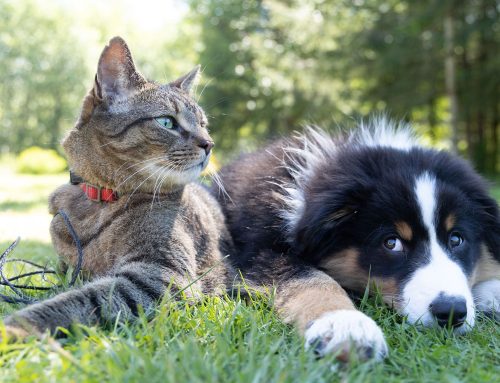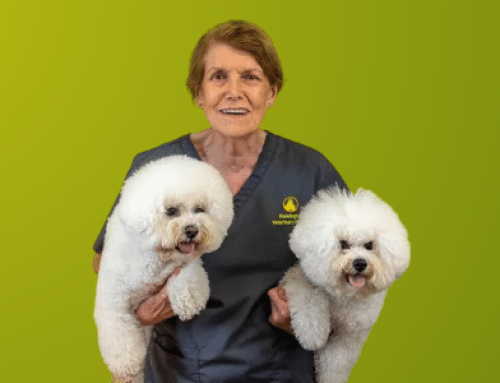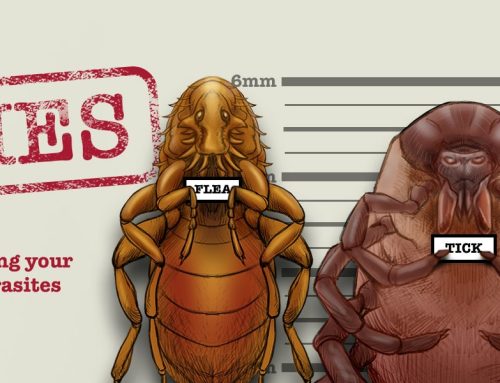Just like humans, our pets need some extra love and care as they age.
We recommend routine health assessments every 6-12 months. This includes a full physical examination as well as blood and/or urine tests. Regular checks can detect problems in their early stages, even before a dog may show any outward symptoms. Some changes can be prevented or be made more manageable because prevention is better than a cure!
Mobility and Exercise:
Arthritis is an extremely common problem we see in senior dogs. When managed early, we can dramatically improve the quality of life in older dogs.
Management depends on the severity of the symptoms. Every senior dog is unique so your vet can make the best recommendations after a comprehensive health assessment. It may be as simple as starting with an effective joint supplement but more severely arthritic dogs may benefit from prescription medications.
Regular exercise is imperative for good joint health. Lack of regular exercise may accelerate muscle wastage and exacerbate the symptoms of osteoarthritis. Introducing light resistance exercises can even help engage their leg muscles more. This may include walking on loose sand or up gentle slopes. Be sure introduce any change to your dog’s exercise routine gradually.
Common symptoms of joint disease:
Dental Health:
Dental disease is by far the most common problem we see in our practice and almost all dental problems can be prevented. Dental disease includes the following problems:
- An accumulation of plaque, tartar and dental calculi – around the teeth and under the gum line
- Gingivitis – inflammation of the gums (painful)
- Gingival recession – when the gum line is pushed back irreversibly beyond the normal position (very painful)
- Detachment of the tooth roots (very painful)
Common symptoms of dental disease:
The vast majority of dogs will not show any outward symptoms of dental disease until the pain is intolerable.
Fortunately, there are many things that we can do to prevent and also treat dental disease. Firstly, ask your vet to perform an oral health assessment to determine your dog’s oral health status. More severe cases of dental disease will require a dental procedure to treat the problems. There are numerous ways to prevent dental disease and not all methods will be appropriate for your dog. After your vet performs an oral health assessment, they will discuss the best and most appropriate solutions to suit your lifestyle.
Behaviour and Cognitive Function:
Providing mental stimulation can help senior dogs deal with the cognitive and physical changes as they get older. Here are some ideas to get you started:
- Introduce new toys – there are many great interactive toys on the market (many that involve using food as a motivator). Great options include: interactive Kong toys (Kong Wobbler) and LickiMats
- Play new games – introduce new games to stimulate the mind. You could try hide and seek with people or food.
- Visit new places – dogs are very sensory animals. New environments have new sights, sounds and smells to keep your dog stimulated.
Symptoms of cognitive dysfunction:
A common problem that our senior canine friends can encounter is canine geriatric cognitive dysfunction (CGCD), otherwise known as “doggy dementia”.
The symptoms of CGCD can manifest very differently between individuals. Some owners see changes in sleeping patterns in early stages, whereas other owners might just see their dogs staring at the wall. In more advanced cases, dogs can develop severe anxiety, start toileting in the house or spend all night barking.
Unfortunately, CGCD is not curable but there are many ways that we can manage the condition to improve overall quality of life. Depending on the individual patient, there are certain prescription diets, supplements and medications that can help manage the problem. If you have any concerns, have a chat with one of our vets.
Diet:
Dietary requirements change as dogs get older. As they become less active and their metabolism slows down, older dogs will need less calories. It is important to keep your dog at an ideal body condition to reduce the risk of other related health issues (such as osteoarthritis).
We recommend selecting a premium quality dog food that is made for senior dogs. These diets contain extra support for muscles, joints, skin and brain health. Some dogs can have specific conditions that require their own special diet. In such cases, your vet can recommend food additives or supplements to help your dog age gracefully.





